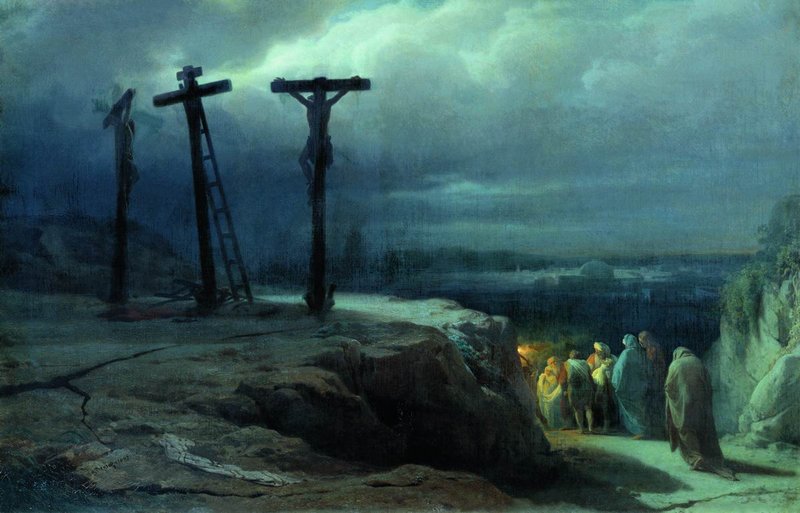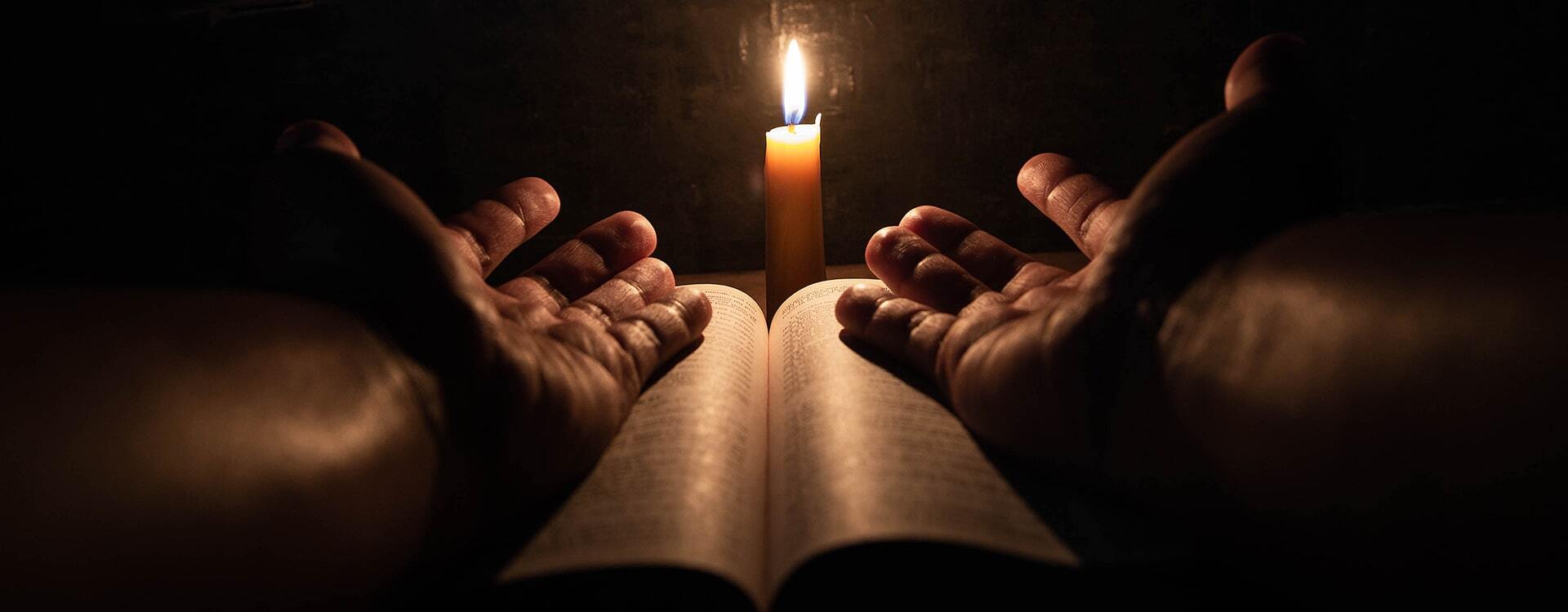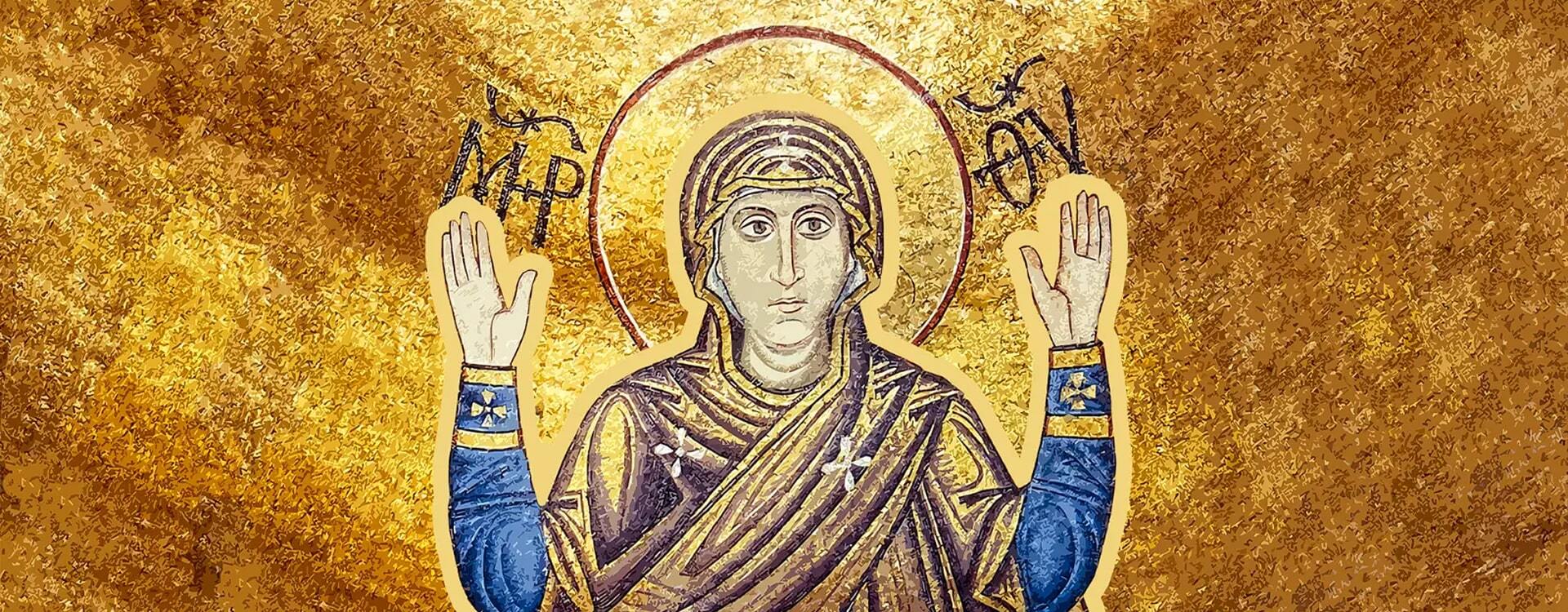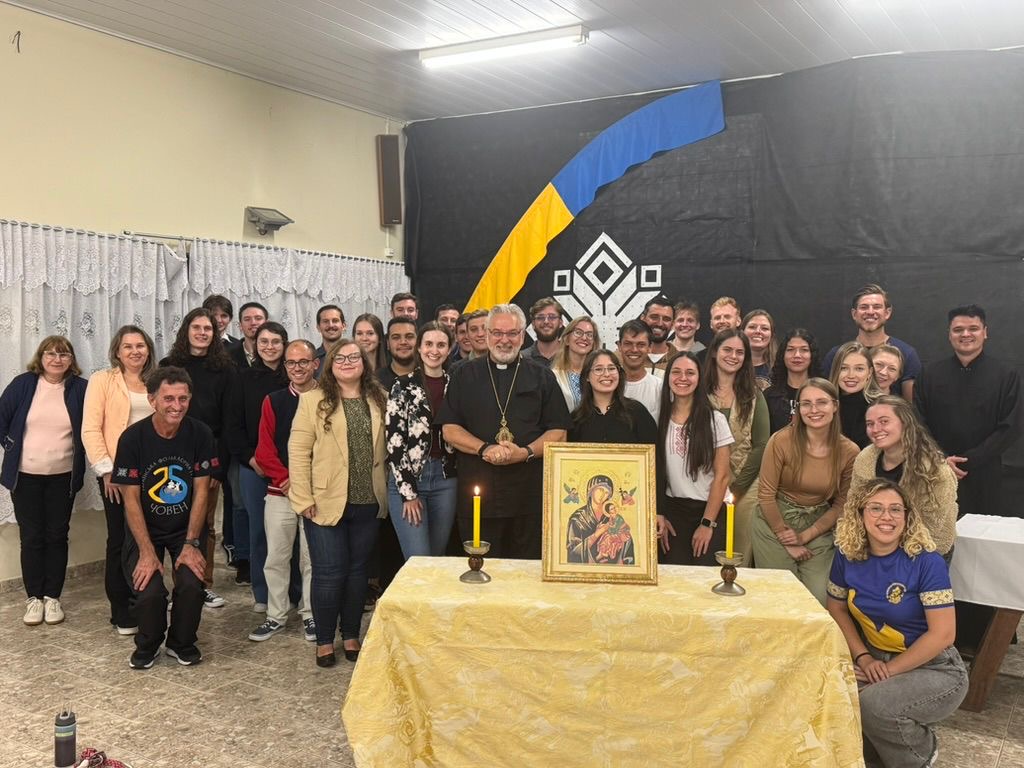Three aspects which will change the Easter perception

Last week before the important event - the Resurrection is the time of mourning, slowing down, inner peace or possibly the time of tension and emotional experience.
Maksym Tymo, the theologian explained why the Holy Week is so significant and special and what is the main content of Easter, the greatest Christian holiday, during the meeting with the Young Couple Community at the Church of the Transfiguration in Lviv.
Читай українською: ТРИ АСПЕКТИ, ЯКІ ПЕРЕВЕРНУТЬ УЯВЛЕННЯ ПРО ПАСХУ
Maksym Tymo proposed to look at the Passion of Jesus in terms of how they relate to each of us, for a better understanding of the importance of these days.
“We endowed Christmas and Easter, the greatest Christian holidays, with sentimentalism which hinders the understanding of their deeper meaning.”
We perceive the Passion of Jesus through a prism of how hard He suffered and endured for us and how difficult it was.
Maksym Tymo suggested three main “starting” points for realization the significance of Christ's sacrifice for us. These “starting” points will help us understand what we should do to follow Jesus.
“Our Lord who was sold and who bought us back, thank You”
- The whole tragedy and bitter irony of the Jesus last days on Earth were in the phenomenon of being sold by everyone.
Bishops and priests sold Him because of the fidelity to their religious beliefs. They could not imagine the Messiah in the guise of Jesus because they had their own understanding of how He should look like.
Pontius Pilate sold Him for the preservation of stability in the society and for the maintenance of the balance of relations between religion and state. He knew that Jesus was innocent, but did not want to protect Him because it was disadvantageous.
Warriors sold Jesus for the possibility to mock the defenseless man. They were not told how to scourge Him. According to the testimony of the authors, the punishment could be brutal but also more or less bearable. The warriors thought that the Jesus had rebelled against Caesar, therefore, they used the most severe punishment.
It is believed that Judah sold Jesus for money but, in fact, it is primitive interpretation. My research shows that he sold Christ for his own understanding of the Savior. He wanted to see in Jesus another person, a person who could show His divine power and overcome the Roman soldiers; a person for whose protection the angels could descend. But Jesus decided to die.
Even Petro, the closest disciple, sold Jesus for his fear, having renounced him.
“It is especially important to each of us during these days to understand for what we are ready to sell our God: for status, hobbies or bad habit ...?”
Jesus suffered so that we could live
The second important aspect is that Jesus was repeatedly given back by somebody. While Judah gave Him back to Pilate; Pilate gave Him back to the high priests; they – to the Roman authorities; the people gave Him back to the soldiers; the soldiers – to the mockery and cross, Christ gave the Spirit back to God.
This sequence proves that He was ready to take responsibility not only for the particular sins but to redeem us from all sins. His death on the cross and His pain are not a single moment but all His life, which was a donation for us. It is important to understand how Jesus accepts the will of God. The crucifixion became His last point and a radical step.
“We should understand that the acceptance of God’s will is the most peculiar imitation of Christ. We cannot imitate Jesus in His Passion because it is an immense sacrament for us. We should not try to feel it and empathize because it is impossible for us and even useless. We are not able to penetrate into the depth of his suffering. It is important to perform Christ’s words: if you want to come with me you should take your cross and follow. We should not invent special feats and emergency practices because it will not help us to become more valuable to God. We should only accept things which God places on our shoulders. Jesus did not suffer in order to let us suffer; he suffered so that we could live the fullness of his life. ”
Abandonment of God as a reflection of hell
Another important point that draws us closer to the Holy Saturday is the abandonment of Jesus on the cross.
All four Gospels depict Jesus' life as inseparable from the Father because He creates everything in His name. The acceptance that his Father abandoned Him on the cross: “My God, my God, why hast thou forsaken me?” is the most tragic moment from the theologian and existential points of view because the isolation from God is what is called hell.
“Jesus suffers from the abandonment of God so that none of us may feel this. He participates in our sufferings and accepts death which at that time was the most shameful.”
Easter as the regeneration
Easter is the peak of Christian faith. All religious texts are not concentrated on the theme of suffering but on the theme of resurrection. Jesus died to bring us to new life. If we mobilize spiritually during the Great Fast through the recollections, confessions and sacred evenings then after Easter we become numb and do not know what to do next. There comes a period of stagnation. But in fact, if Great Fast is the time to give certain things up and to rethink our life then Easter should become the “assimilation” of all these things through the Christian rebirth.
We sing in troparion that Christ gives us life. We cannot earn it with the help of sacred exercises, prayers, fast or ask about it. He loved us so much that He gives it to us: “I have come so that they may have life and have it in abundance.“
 Maksym Tymo is the Master of Theology. He is the lecturer in liturgical chants at Lviv Seminary and the member of “Trypisnets”, the group of translators who deal with liturgical texts. Furthermore, he is the lecturer in the course, called "Liturgy and Art" at Icon Painting Summer School at the Ukrainian Catholic University (UCU) also an employee of UCU’s Spiritual-Pastoral Department and Patriarchal Liturgical Commission of the UGCC.
Maksym Tymo is the Master of Theology. He is the lecturer in liturgical chants at Lviv Seminary and the member of “Trypisnets”, the group of translators who deal with liturgical texts. Furthermore, he is the lecturer in the course, called "Liturgy and Art" at Icon Painting Summer School at the Ukrainian Catholic University (UCU) also an employee of UCU’s Spiritual-Pastoral Department and Patriarchal Liturgical Commission of the UGCC.
Education:
1997-2004 studied at the Theology Faculty of Holy Spirit Seminary in Lviv.
2004-2007 studied at the Ukrainian Catholic University (UCU) and obtained a master's degree in Theology. The theme of master’s thesis was: “Person’s theology and his or her salvation in the liturgical texts about Christmas.”
Written down by Nataliia Pavlyshyn
ПІДТРИМАЙТЕ ДИВЕН СВІТ
проєкту
ЧИТАЙТЕ ТАКОЖ













